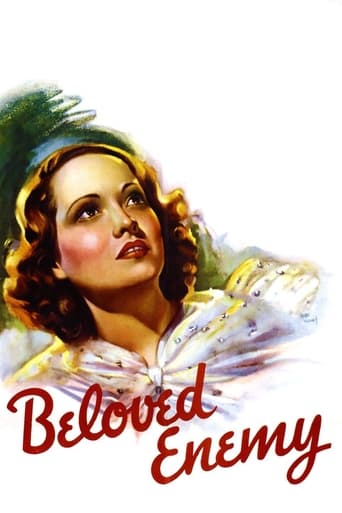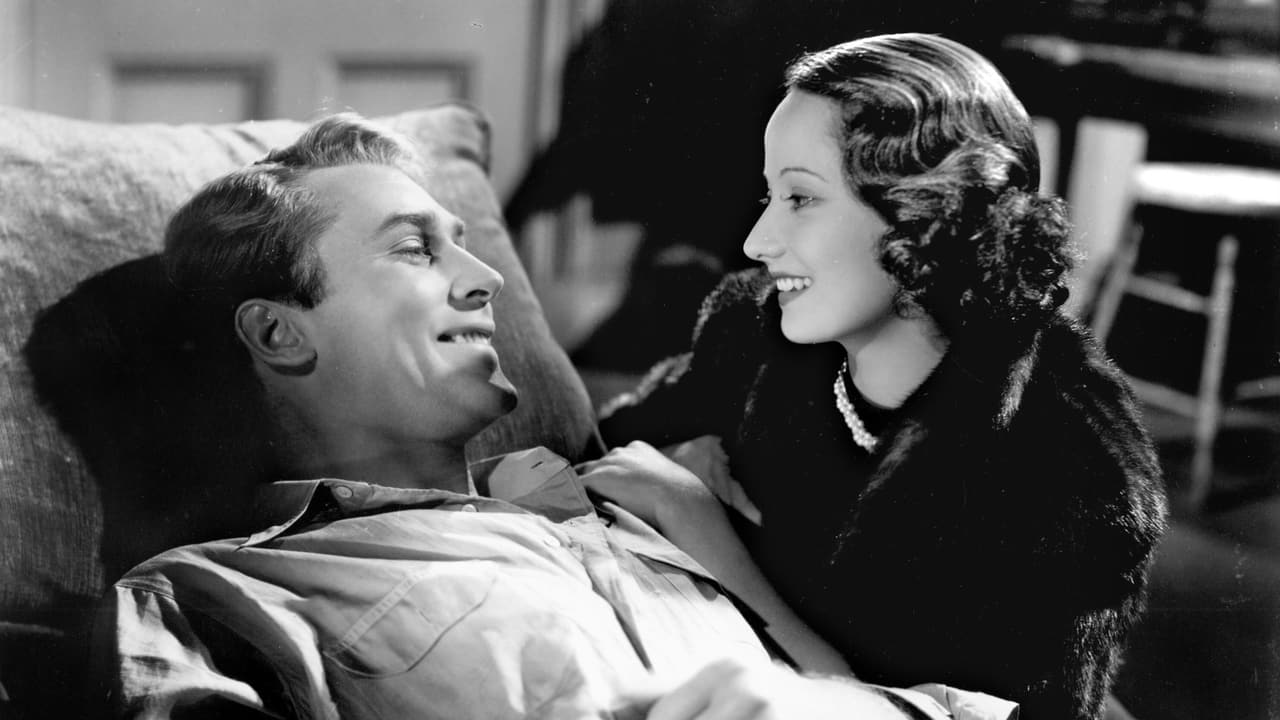GusF
A "Romeo and Juliet" story set against the backdrop of the Irish War of Independence in 1921, this is a hugely enjoyable romantic historical drama. Saying that the history of Anglo-Irish relations is contentious and often violent is a bit like saying that the Sun is hot but the film romanticises it in the wonderfully entertaining way that only 1930s Hollywood could. The film is well directed by H.C. Potter. The very strong script by John Balderston, Rose Franken and William Brown Meloney paints the war, which has never exactly been a particularly popular subject for the silver screen outside of the generally lacklustre Irish film industry, in broad strokes. That said, the depiction of the conflict is not overly simplistic as neither side is presented in black and white terms. As someone who knows a great deal about the Irish history of this period but is not terribly nationalistic about it, I appreciated that. Watching films about 1920s Ireland is a bit of a departure for me as my PhD concerns the period, albeit the drafting of statute post-1922 as opposed to the War of Independence, and I generally try not to think about my work while I am relaxing but I was prepared to make an exception in this case.The film stars the underrated Brian Aherne in an excellent performance as Dennis Riordan, a prominent Irish revolutionary and minister in the government of the unofficial and unrecognised Irish Republic. Riordan is essentially a nicer and more honourable version of Michael Collins. Like Collins, he is one of the leaders of the IRA - which is now called the Old IRA to distinguish it from its later incarnations - and a senior member of the Irish delegation sent over to London to negotiate the Anglo-Irish Treaty of 1921. I was not surprised that, with the exception of a photograph of Padraig Pearse, none of the actual Irish revolutionaries of the 1916-22 period were alluded to or mentioned by name in the film. In fact, I would have been shocked if they had been since many of the surviving ones were ministers in the then Irish government or had been ministers in the previous one. Riordan loves Ireland with a passion and is certainly prepared to fight for his country's freedom but he harbours an old dream of retiring to a little farm in Galway where he can forget about the conflict and live a normal life. When it comes to the controversial provisions of the Treaty, he is conflicted between his oath that he will do everything possible to secure a republic and his desire for peace after almost three years of warfare. While most of the Irish characters in the film are played by Irish actors, Aherne is the major exception as he was English, though he was of Irish descent as his name would suggest. His Irish accent is pretty variable, sometimes sounding more Scottish, but the strength of his performance means that it was surprisingly easy for me to overlook that.Merle Oberon is great as his beloved enemy Helen Drummond, the daughter of the prominent British diplomat Lord Athleigh. At the beginning of the film, the British forces are unaware of what Riordan looks like and, after he is briefly arrested, he decides to have a little bit of fun with them by claiming to be Dennis Riordan, knowing that they will not believe. After running into each other again, Riordan and Helen spend the day together in the countryside and, as often happens in such films, fall madly in love in a flash. After Helen learns that the medical student Tom Casey is in fact Riordan, she alerts her father and the authorities in the Viceregal Lodge (now the President of Ireland's official residence Áras an Uachtaráin) and they unsuccessfully attempt to arrest him at a cattle market. Helen soon comes to regret her decision and goes to Riordan to apologise, telling him that she loves him. Aherne and Oberon have great chemistry and their scenes together are very romantic and occasionally moving, even if they are in no way realistic. While much is made of Riordan and Helen's different nationalities, this is no mention of the fact that he is almost certainly a Catholic and she is almost certainly a Protestant, which would have been a very pressing issue under the circumstances. Riordan's fellow Irish revolutionaries believe that his love affair with an English aristocrat is clouding his judgement and make him swear an oath that he will never see her again, at least in private. When Riordan - who holds the casting vote - decides to sign the Treaty, the more radical republicans in the movement believe that it is because of Helen's influence and attempt to assassinate him. However, the fictional Riordan fared better than the real Collins as he survives the attempt. In one of his first major roles, David Niven is very good as the charming Captain Gerald Preston. His feelings for Helen are not returned but he accepts the consistent rejection with grace and charm. It's a good thing that Niven wasn't cast as Riordan as he is so quintessentially English that I could never buy him as a Michael Collins stand-in! Henry Stephenson, the poor man's C. Aubrey Smith, is dull and forgettable as Lord Athleigh. The effortlessly fantastic character actor Donald Crisp is very good as Liam Burke, the most radical of the radicals. In contrast to Riordan, Burke is not based on any senior Irish revolutionary in particular but he has traces of Eamon de Valera and Cathal Brugha. He'd have been better as Lord Athleigh as well, come to think of it. Overall, this is a very entertaining film. It is far from an entirely accurate depiction of Ireland in 1921 but it was never supposed to be anything of the sort.
mark.waltz
Don't expect the true story of what was going on in Dublin and most of Ireland during the early 1920's; That has been sanitized out as to not "offend" the movie viewers over there. What is present is an acceptable love story with some of the political intrigue intact, but it is basic background to the typical romantic struggles of total opposites whose love affair seems to be doomed from the start.Brian Donlevy plays a fictional character, possibly a composite of various Irish rebels who eluded the police and military and stirred up enough trouble to keep this rebellion going on for decades. When Merle Oberon arrives with her British ambassador father (Henry Stephenson) in Dublin, she accidentally encounters Donlevy and after some initial unpleasantness from him because of her station in life, they can't help but admit that they are attracted to each other. She is trapped inside his hide-out during a raid and after being taken back to London, convinces her father to set up a meeting with the leaders of the rebellion. Members of Donlevy's team (particularly Donald Crisp and Jerome Cowan) are against a "treaty", and this leads to Donlevy accused of being a traitor.While female roles in movies like this are usually meant to be merely "window dressing", Oberon adds some spark into her character which makes her much more interesting. She tosses out enough of her own ideals about the rebellion, and this makes her more compelling as a part of a serious plot. This is where the film succeeds as its structure isn't about the actual rebellion or the reasons behind it, but cause and effect and looming tragedy when one member of a rebel team seems to be drifting away from his priorities. Solid acting, outstanding production design and sparking direction by H.C. Potter makes up for the lack of fact that was already covered in plays and films like "Juno and the Paycock" and "The Informer".In order to enjoy this film it helps to know a little something about this period of history, something which has recurred between Ireland and "the mother country" a lot over the future decades. On the level of a doomed love story, it works best, with Oberon and Aherne a gorgeous pair whom you root for up to the moving finale.
mukava991
In the "love-against-the-backdrop-of" genre, BELOVED ENEMY occupies a rather high position because of the intelligence with which an extremely unlikely romantic relationship is handled. Merle Oberon, the daughter of a British bigwig (Henry Stephenson), falls in love with an Irish rebel leader (Brian Aherne). But not only does her love for him not turn her against her own people, she even rats on him to the British military, only to be hugely relieved when he escapes from their ambush. Then she has the gall to visit him and admit her betrayal! This is truly a case of love conquers all. On one level this film is a plea for peace from a woman's point of view. Movies with pleas for peace were not uncommon in the mid- to-late Thirties. Needless to say, this production is a pure Hollywood gloss on the realities of the 1921 Irish Civil War, but at least the opening credits admit clearly that the story is "legend based on fact" with fictitious characters. When the going gets a bit heavy, we have those stunning physical specimens of Oberon and Aherne (their surnames even sound like poetry together) to feast our eyes upon. In close-up profile they both look exquisite. Oberon was a fine actress, much underrated. She had her limitations, but here, as in many other films, not only turned in a creditable and convincing performance but was a pleasure to watch as she did so. Aherne, as finely carved a block of wood that ever took human form, never quite comes to life. He is somehow not all there.
modern_maiden
This is a fine film depicting the fictitious love affair between an English Lady and an Irish rebel leader in the 1920s. Merle Oberon gives an endearing performance as Lady Helen, who coincidentally meets Dennis Riordan (played by Brian Aherne) under false pretenses. They should have been enemies. She represented everything their respective sides were fighting against. But her charms beguiled him and when they each realize they are falling in love with the enemy, it is too late.This is a story of star-crossed lovers, each having to decide between their moral convictions and a true love that may never come again. Brian Aherne is charismatic as the clever rebel leader. Henry Stephenson is perfect as Lord Athleigh, Helen's tough but wise father, sent to Dublin to settle the Irish uprising one way or another. David Niven is splendid in a supporting role as Gerald Preston, assistant to Lord Athleigh, only a year before he is to wow audiences as Captain von Tarlenheim in "The Prisoner of Zenda".Although this is a love story, there is plenty of action and intrigue involving the hunt for Riordan and the rebels by the English.If you like Merle Oberon, don't miss her in "The Divorce of Lady X" or "Wuthering Heights", both with Sir Laurence Olivier.



 AD
AD



